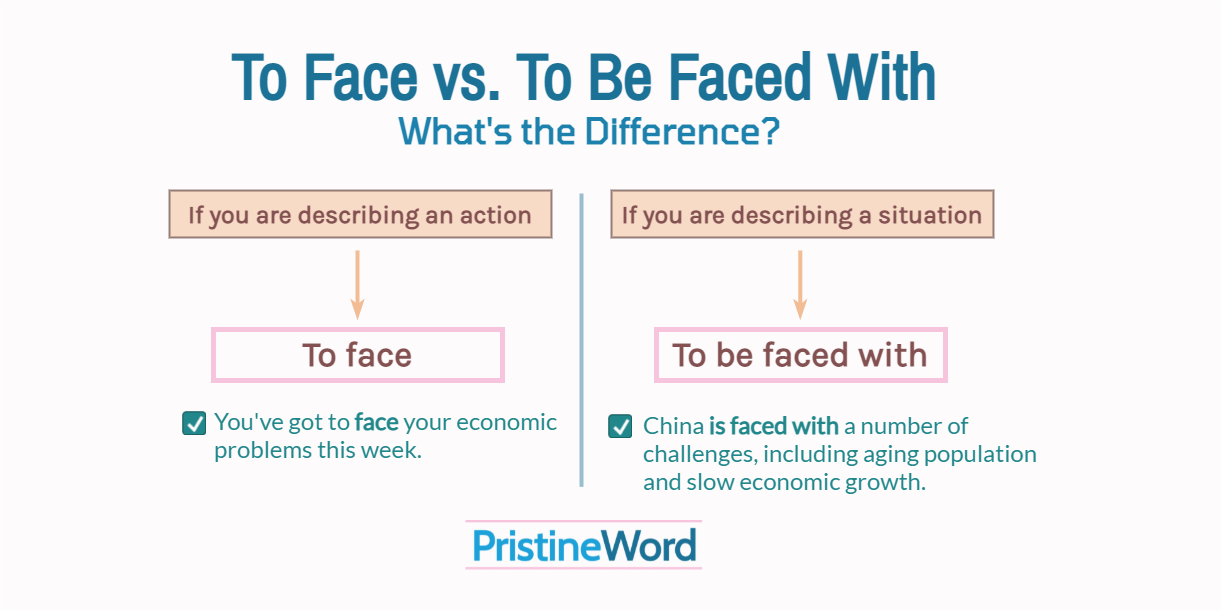To face something means to confront or deal with something difficult or unpleasant. As a result, you are describing an action. To be faced with something has a similar meaning, but in this case you are describing a situation.
- To face something means to confront or deal with something difficult or unpleasant. As a result, you are describing an action.
- To be faced with something has a similar meaning, but in this case you are describing a situation. "To be faced with" means that you are passive, maybe because you are unwilling to confront a situation.
Both expressions are correct. Choose the right phrase for the situation by judging whether you are describing an action or a situation that just "is". In either case, remember that you are talking about a negative or challenging situation, never a positive one.
Examples
- Developing countries are faced with environmental challenges due to rapid population growth and climate change.
- You've got to face your economic problems this week.
- China is faced with a number of challenges, including aging population and slow economic growth.
- John is facing problems. His family is fighting and struggling all the time.
- Spain is faced with a general decline in economic activity.
- Face your workplace challenges before planning your holiday.
- Alaska Natives are faced with a health crisis.
- The service sector is facing big challenges because of the economic downturn.
- Asian countries are faced with some challenges due to rapid urbanization.
- Face your problems! By the way, fix them as soon as possible as well.
Another Way To Say 'To Face'
Instead of saying to face, you can use the verb to confront in many situations.
- The government wants to face wealth inequality through fiscal reform.
- The government wants to confront wealth inequality through fiscal reform.
Another example:
- The managers must face difficult changes in the company.
- The managers must confront difficult changes in the company.
Another Way To Say 'To Be Faced With'
Instead of saying to be faced with, you can use the verb to experience as follows:
- Spain is faced with high unemployment rates.
- Spain is experiencing high unemployment rates.
Another example:
- Our company is faced with liquidity problems.
- Our company is experiencing liquidity problems.

